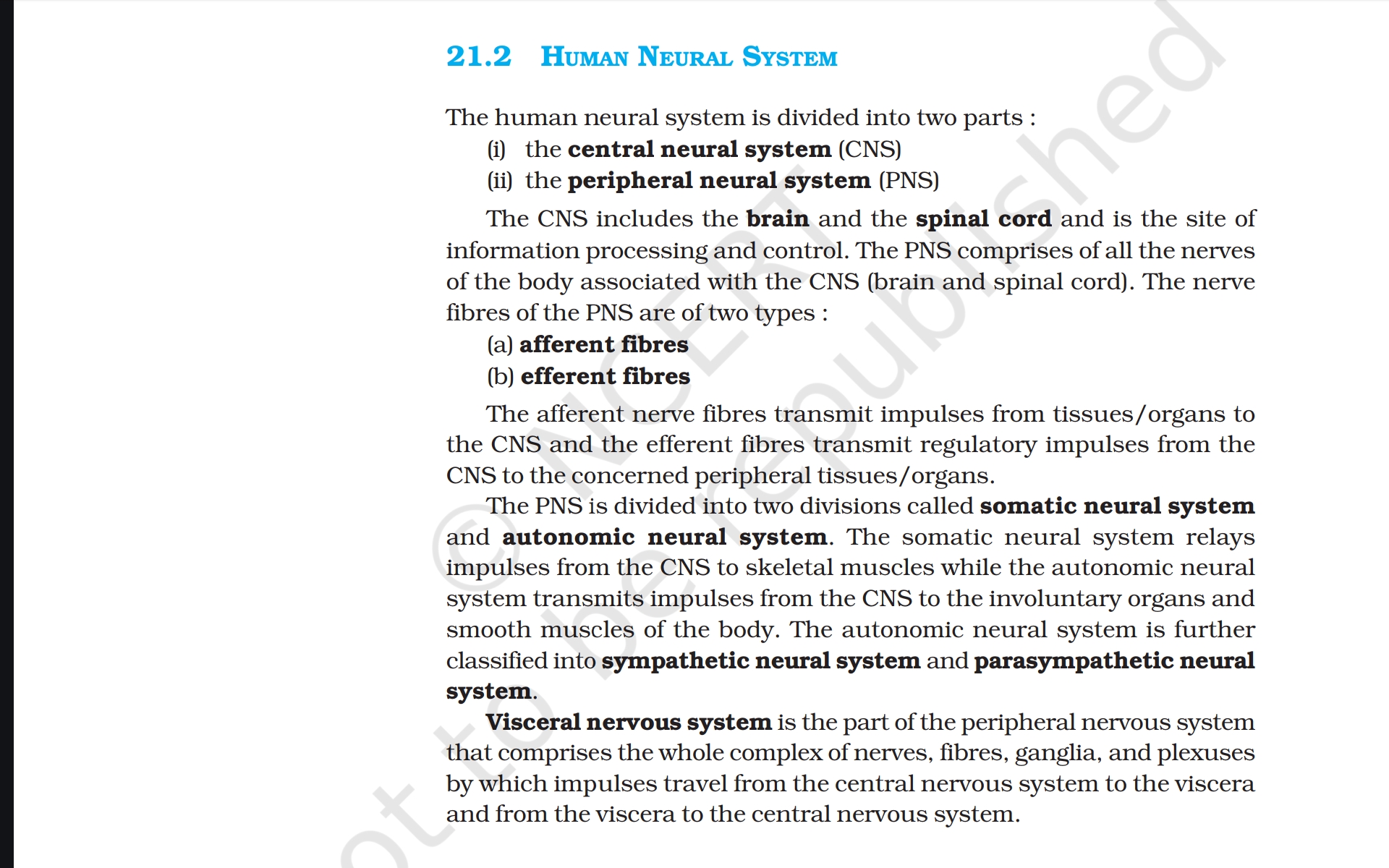What are the main components and functions of the human neural system, including the central and peripheral nervous systems?

Understand the Problem
The question is asking for information about the human neural system, specifically its division into the central and peripheral nervous systems, the types of nerve fibers, and the roles of the somatic and autonomic nervous systems.
Answer
The CNS consists of the brain and spinal cord. The PNS includes nerves, divided into afferent and efferent fibers, and further into somatic and autonomic systems.
The human neural system consists of the central nervous system (CNS), which includes the brain and spinal cord, and the peripheral nervous system (PNS), which includes all nerves outside the CNS. The PNS is divided into afferent and efferent fibers and further into somatic and autonomic systems.
Answer for screen readers
The human neural system consists of the central nervous system (CNS), which includes the brain and spinal cord, and the peripheral nervous system (PNS), which includes all nerves outside the CNS. The PNS is divided into afferent and efferent fibers and further into somatic and autonomic systems.
More Information
The CNS acts as the control center, while the PNS serves as the communication lines linking the CNS with the body. The autonomic system in the PNS regulates involuntary functions, with the sympathetic system preparing the body for stress, and the parasympathetic system calming it.
Tips
Avoid confusing afferent (sensory) and efferent (motor) fibers; they serve different functions.
Sources
- What are the parts of the nervous system? | NICHD - nichd.nih.gov
- Central Nervous System: The Brain and Spinal Cord - Kids Health - kidshealth.org
AI-generated content may contain errors. Please verify critical information